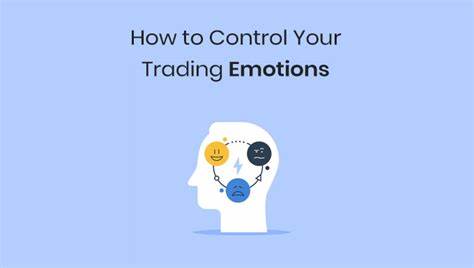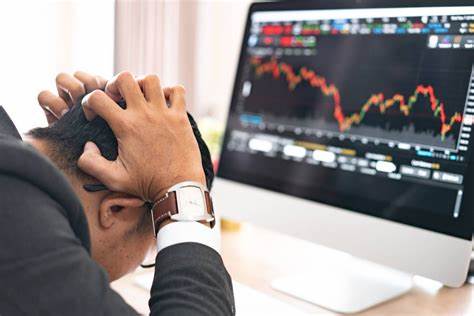Why Emotional Control Is the Most Underrated Skill in Trading:
Table of Contents
In the world of fast trading, strategy, technical analysis, and market patterns receive a great deal of prominence. Chart pattern tutorials, indicators, and risk management tools saturate websites. But one of the most necessary aspects is consistently underemphasized: controlling emotions. The intangible asset has the capacity to destroy or rescue a trader, regardless of the technical expertise he possesses.
The Real Battle in Trading: The Mind

Unlike any other profession, trading requires one to make decisions under pressure, often with high stakes involved. It’s not a battle against the volatility of markets; it’s a battle against oneself.
Think about it: when the market suddenly drops or surges in a direction you didn’t expect, what’s the best of you? Most often, it’s not logic or analysis; it’s fear, greed, anxiety, or overconfidence. And that’s where most traders lose, not to the market, but to their reaction.
Emotional Control vs. Technical Skill
A trader may possess the quickest technical brain, the greatest trading software, and be in touch with the best news streams. But with no mastery over emotions, all that information becomes useless in the blink of an eye.
Suppose two traders
- Trader A possesses good ability but flawless emotional regulation.
- Trader B has sophisticated technical skills but lets his emotions make the decisions.
Trader A will be more likely to be constant, better, and better in the long run. Trader B will win big on some deals but will definitely suffer huge losses because of impulsive actions out of emotions.
Read More: How to Invest in Cryptocurrency in Sri Lanka Guide 2025
Common Emotional Traps Traders Fall Into
1. Fear of Missing Out (FOMO)
This is a serious offender, especially in the case of bull markets or trending uptrends. Seeing others profiting can induce rushed entries into positions without sufficient research. FOMO sufferers will enter at highs, only to have the price correct.
2. Revenge Trading
After suffering a loss, some traders rush into another trade in an attempt to “win back” their money. This is revenge investing, and it rarely pays off and will in most instances lead to more losses. Revenge trading is driven by frustration and impatience. Two attitudes that cloud judgment.
3. Greed
Holding a trade too long, even when it’s time to exit based on signals is another pitfall that traders fall into. Greed cautions a trader, “Maybe it’ll go up just a little bit more,” and usually results in giving back all gain and a little more.
4. Panic
A sudden drop in the market has the potential to induce panic selling, even in trades that are otherwise sound. This kind of selling has the effect of crystallizing losses that would have been prevented with composure.
5. Overconfidence
Following a series of profitable trades, confidence can get the better of you. It can result in a larger position size, disregarding risk management principles, or taking trades without adequate analysis.
Emotional Control as a Strategy
Instead of viewing emotional control as a vague soft skill, traders would be better off thinking of it as a core strategy. Just as crucial as entry and exit points.
How to Develop Emotional Control
Let’s explore practical ways to cultivate this crucial skill:
1. Have a Trading Plan and Stick to It
A written trading plan lays down rules for trade size, risk management, entry, and exit. By being adhered to strictly, it can act as an insulation against emotional based decisions. Discipline is easier when rules are established in advance.
2. Use Stop-Losses and Take-Profits Wisely
Putting stop-losses prevents a losing trade from becoming a killing trade. Take-profits lock in gains without having to think twice. They help reduce the tendency to do things on impulse aftermarket movement.
3. Keep a Trading Journal
Documenting each trade along with your thoughts and emotions at the time, provides powerful insights. Over time, patterns emerge. You’ll start to notice when emotions influenced your trades and how those trades performed. This self-awareness is the first step toward control.
4. Take Breaks and Disconnect
As with athletes who need rest in order to perform at optimal levels, traders also find breaks helpful. Breaks enable you to return refreshed and prevent you from getting emotionally drained.
5. Practice Mindfulness and Reflection
Mindfulness practices such as deep breathing and sharp awareness can prevent you from stressing out and keep you grounded. By regularly keeping an eye on your emotional triggers, you become more proficient at managing them with time.
6. Focus on Process, Not Outcome
When all the trader can think about is profits and losses, emotions run high. But when the focus is on executing the right process no matter what happens in the short term, there is less emotional upheaval. Keep in mind that even flawless trades can result in losses based on unpredictable market moves. What counts is consistency and sticking to a solid methodology.
Why Emotional Control Creates Longevity
Most traders don’t fail due to lack of knowledge, they fail due to emotional exhaustion. Emotional control helps you:
- Trade regularly and prevent burnouts
- Maintain capital preservation during drawdowns
- Avoid social trading environment noise and peer pressure
- Think clearly even during volatility
It’s not flashy or measurable, but self-control of emotions is what enables traders to remain in the game long enough to become extremely proficient.
Real-World Examples of Emotional Mastery
Example 1: The Patient Position Trader
A position trader notices a sound fundamental stock that has declined due to short-term bad news. Social media goes crazy, yet this trader silently goes through fundamentals, re-validates their case, and just waits. Half a year down the line, the stock makes a comeback to new highs. The reward? A good return is made while being calm rather than reactive.
Example 2: The Disciplined Day Trader
A day trader sees a potential breakout, but it is not to their exact entry parameters. Instead of taking the trade, they let it pass. Another setup later occurs that is exactly to their system. They take it and make a small but consistent profit. Their triumph was not in dollars it was in controlling the emotional self-discipline to let the first trade pass.
How Institutions Handle Emotions
Institutional traders do not believe in emotions, they believe in systems and facts. Institutional traders use checklists, risk criteria, and teamwork to reduce emotional decision-making. Retail traders can do the same by creating their formal procedures.
The Role of Emotional Control in Risk Management

An emotionally unstable trader will cause risk inadvertently. Overleveraging, stopping out stop-losses, or doubling up on a losing trade all have their reasons rooted in emotional motivators. Without emotion, though, risk is still calculated and intentional.
Risk management isn’t numbers; it’s about toughness of mind. It’s being able to hold your ground even when every fiber in your body wants to do something else.
Measuring Emotional Progress
Where emotional discipline is harder to quantify than profits, you can quantify progress as:
•Being able to execute fewer impulsive trades
•Regretting less when closing a trade
•Not having to deviate from your plan
•Being able to capture better entries into your trading journal
The goal is not to be heartless, it’s to be emotionally intelligent. Get familiar with emotions, but don’t let them dominate you.
Final Thoughts: Master the Mind, Master the Market
Trading is a mental sport. Of course, charts, indicators, and economics are all important, but your biggest edge is how well you can control your inner game. The champions at trading aren’t necessarily the brightest or most talented traders; they’re the most emotionally well-adjusted.
So next time you are studying a trading system or examining a chart pattern, take a look inside. Ask yourself: What are the emotions behind my decisions? Am I logical and calm, or reactive and impulsive?
Achieving emotional control not only enhances your trading activity. It also teaches discipline, patience, and a kind of self-discipline that can be applied in every aspect of your life.
Because in trading, as in life, those who remain grounded when others are panicking are the ones who truly thrive.
